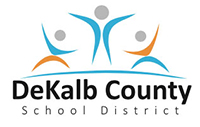This article was created in collaboration with Joanne Potts, a Title I Parent Liaison at Rockbridge Elementary. Click here to submit your own article.
As an English-speaking American, have you or someone you know ever traveled abroad? How effective was the communication with the foreign countrymen? Were you able to speak and understand their language? Did you have to depend on someone else? Was an interpreter available?
What about your elementary-aged children? As they grow into adulthood, do you think they will be a contributing member of a globally diverse society?
Over 20 European countries require elementary students to study their first foreign language as a school subject, however, the United States traditionally has not. Rockbridge Elementary School, through its innovative French Language Immersion program, is seeking to change that one student at a time.
 Rockbridge Elementary is one of several DeKalb County School District (DCSD) schools proactively implementing dual-language programs extending from kindergarten through fifth grade. As part of the program, students begin learning in two languages—often receiving instructions in several course areas in the respective language of study—beginning in kindergarten until the transition into middle school. Students continue the program for six years, often sticking together at each grade level.
Rockbridge Elementary is one of several DeKalb County School District (DCSD) schools proactively implementing dual-language programs extending from kindergarten through fifth grade. As part of the program, students begin learning in two languages—often receiving instructions in several course areas in the respective language of study—beginning in kindergarten until the transition into middle school. Students continue the program for six years, often sticking together at each grade level.
Derrick Brown, principal at Rockbridge Elementary, is proud to send his first class of graduating fifth-graders off to middle school at the end of the 2018-2019 school year. When Brown originally joined Rockbridge Elementary, he was worried that the immersion program may affect the school’s standardized test scores.
Now, Brown realizes that the program has benefitted students not just in language, but in learning overall.
“These students who are transitioning from fifth grade to sixth grade are often more proficient than many high school seniors in French,” said Brown. “These are some of our highest performing students. These are students who compete in reading bowls, social science fairs, science Olympiads, chess tournaments. For them, learning in French is normal. These are just students learning. The teacher is speaking French, but for them, they’re just in school. Their teacher just happens to be speaking French.”
According to Brown, many students do not realize how unique the programs is because they are the first official cohort of students. The benefits often become obvious at higher levels of education.
Brown is proud to be principal at a school where this level of education occurs on a daily basis.
“This is an awesome opportunity for our students,” Brown said. “We have students who leave our school who don’t know just two languages, but three because they already speak Spanish. This is a normal, everyday occurrence for them. They’re receiving something that is borderline amazing, but in their minds, it’s just what they do.”
Evansdale Elementary, another French-centered school, was honored for its own Dual Language Immersion program in February 2019 by the Government of France’s General Consulate’s Office with the le LabelFrancEducation Award. Other programs, teaching other languages, take place at Ashford Park Elementary (German), and Barack H. Obama Magnet School of Technology (Spanish), and Pleasantdale Elementary (Spanish).
Rockbridge and other DCSD schools are following an international trend. According to Grace Chen’s “Benefits of Foreign Language Education” article, most developed countries already require elementary children, and even toddlers in certain cases, to learn a foreign language. Chen states several benefits are listed for elementary students, including cognitively-internal as well as social skills in external cultural tolerance and relationships.
An excerpt from the article states, “While the United States does not nationally mandate the study of a foreign language in public schools, many global schools around the world have incorporated such requirements long ago. In 2001, The Center for Applied Linguistics discovered that most countries have mandatory foreign language requirements for children beginning at eight years old. However, in the United States, most students do not begin to learn another language until ninth grade, or the age of fourteen.”
Researcher Julia Tagliere wrote in PublicSchoolReview.com, “Being able to speak another person’s language is a critical skill, especially as increased travel opportunities, satellite programming, and international use of the internet have begun to create a truly global community.”
In other words, the days of only going to school with a single language and culture is a thing of the past – and for the better.
For more information on DCSD’s dual language immersion programs and other exciting, innovative programs, visit our School Choice webpage.


